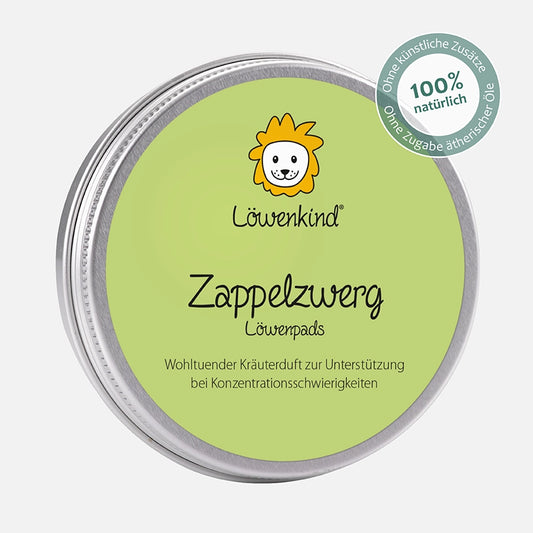Abdominal pain and gas are common complaints in babies and infants and pose a challenge for many parents. These symptoms can be particularly severe in the first few months of life, when the digestive tract is not yet fully developed. Three-month colic can also occur during this time, causing additional stress for both parents and child. Various measures and natural remedies can help provide relief.
Abdominal discomfort in babies
Babies' digestion differs significantly from that of adults. Newborns and infants often have an immature digestive tract, which can lead to frequent gas and abdominal pain . The circadian rhythm and digestive systems are developing in the first few months, leading to occasional discomfort. Natural remedies can help promote the baby's well-being and relieve discomfort in such cases.
Causes of abdominal pain, bloating and three-month colic
Abdominal pain and gas in babies can be caused by various factors:
- Air swallowing: Babies often swallow air while drinking or crying, which can collect in the digestive tract and cause gas.
- Immature intestinal flora: The digestive tract of newborns is not yet fully developed, which can lead to digestive problems.
- Food intolerances: In some cases, intolerance to certain foods can affect digestion.
- Three-month colic: This colic is a specific form of abdominal pain that typically occurs in the first three months of life and is characterized by persistent crying and fussiness. The exact cause of three-month colic is often unclear, but it is commonly associated with digestive problems and gas accumulation in the abdomen.
Medicinal herbs to relieve abdominal pain and flatulence
Medicinal herbs offer a natural way to relieve abdominal pain, bloating, and colic. Some of the best-known and most effective herbs for these purposes include:
Caraway seeds
Caraway has been known for centuries for its beneficial effects on digestion. Caraway can be particularly beneficial for babies and young children when it comes to relieving gas and abdominal pain. The essential oils contained in caraway, particularly carvone and limonene, have antispasmodic and carminative properties. These compounds help calm muscle contractions in the digestive tract and support the elimination of excess gas that causes gas. Caraway is mild enough to be used safely on infants.
fennel
Fennel is a true miracle cure for digestive problems, used since ancient times. It is particularly effective in relieving flatulence and abdominal pain and is characterized by its gentle action, making it ideal for use on infants. Fennel contains essential oils such as anethole and fenchone, which have antispasmodic and soothing effects on the gastrointestinal tract. It is often used in combination with other digestive herbs such as anise and caraway to enhance its soothing effect.
Lemon balm
Melissa, also known as lemon balm, is valued for its calming and relaxing properties. This gentle medicinal herb has traditionally been used to relieve nervousness and restlessness, which can be especially helpful for babies and young children. Melissa contains essential oils such as citral, geraniol, and citronellal, which have a relaxing effect on the nervous system and gastrointestinal tract. These calming properties make Melissa an excellent choice for relieving digestive discomfort, which is often exacerbated by stress and tension. Melissa not only helps settle the stomach but also promotes better sleep, which in turn has a positive effect on the child's overall well-being.
anise
Anise is another valuable herb traditionally used to aid digestion. Anise is particularly effective in relieving gas by relaxing the muscles of the digestive tract and stimulating the production of digestive juices. This eases digestion and helps reduce bloating and cramping. Anise contains essential oils, primarily anethole, which is known for its carminative and antispasmodic properties. In infants and young children, anise can help relieve digestive discomfort such as three-month colic. Anise is often used in combination with fennel and caraway for a synergistic effect that gently and naturally supports digestion.
Use and safety of medicinal herbs
The use of medicinal herbs on babies and young children should be done with special caution. Here are some tips for safe and effective use:
- Dosage: The dosage is crucial for effective and side-effect-free treatment. For babies, external applications of dried herbs are recommended to achieve the desired effect without side effects. The scent of dried herbs is ideal for newborns, as it uses a gentle and well-tolerated solution.
- Test individual tolerance: Before using a new herb, it should be tested over a shorter period of time to rule out allergic reactions.
- Combination with other methods: Medicinal herbs can be particularly effective when used in combination with other abdominal pain relief measures, such as gentle abdominal massage and a calm environment. Regular use of herbs can relieve the baby's discomfort and support digestion.
Conclusion
Medicinal herbs offer a gentle and natural way to relieve abdominal pain , gas, and three-month colic in babies and infants. By using and selecting the right herbs, parents can help their children experience greater well-being and relief. It is important to always pay attention to the child's needs and signals and to seek medical advice if uncertainties or persistent problems arise.
Want to learn more about children's ailments and how to find relief with medicinal plants? Then check out our blog !











